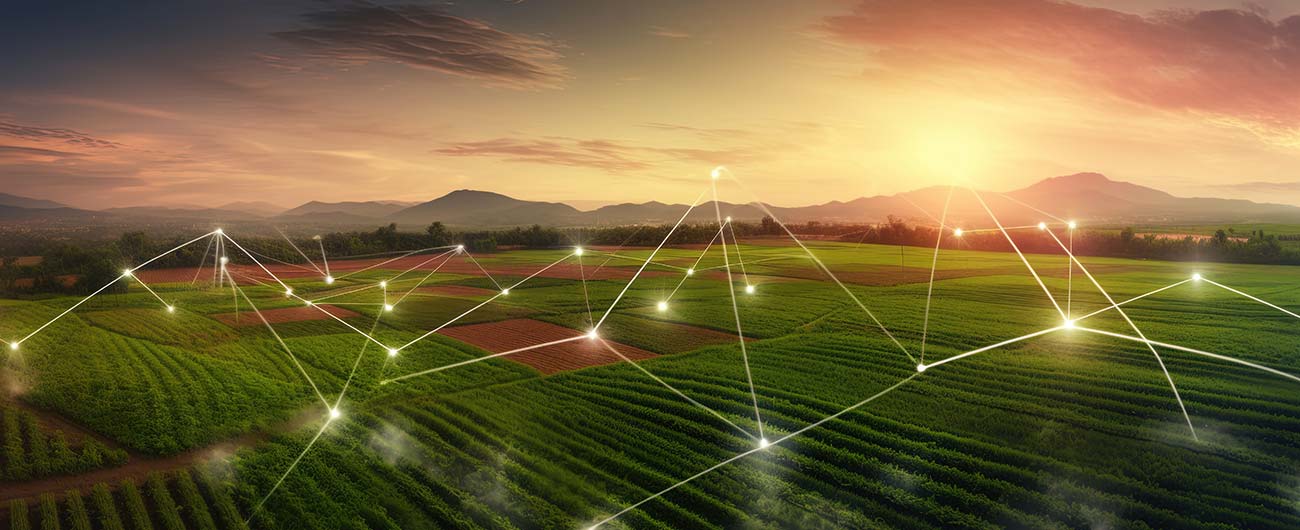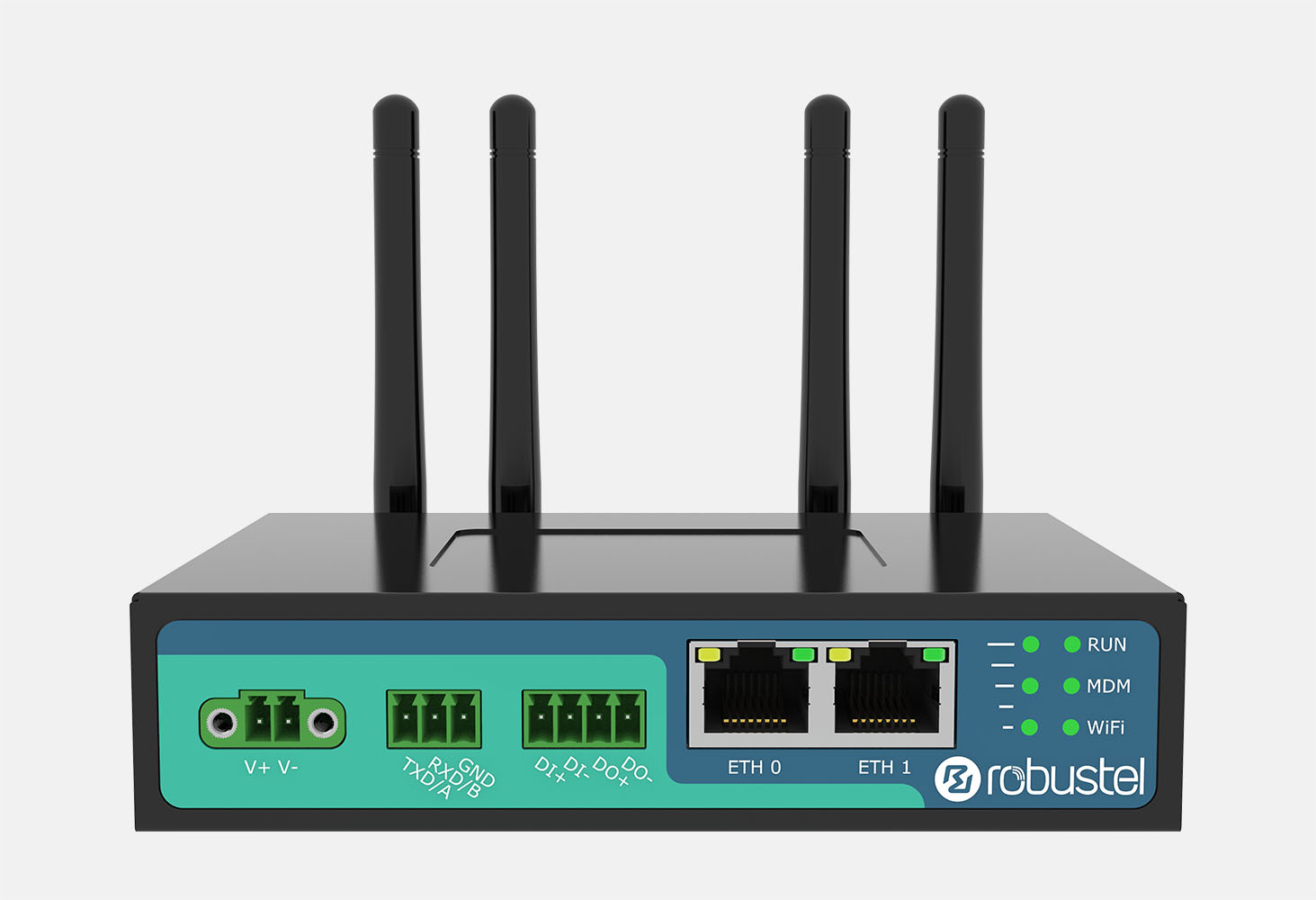In the rapidly evolving agricultural environment, "smart farms" take advantage of the most recent technological advancements to ensure the highest possible crop yields.
Smart farms use cutting-edge temperature control technology and cloud-based crop management software to grow and harvest crops more efficiently.
However, many smart farms are located in remote places that are not connected to the grid and do not have reliable network resources creates a significant challenge. Because of issues with network connectivity, the dependability of modern technology is put in jeopardy, which in turn puts the quality and safety of food in danger.
To address the issues, a comprehensive smart farm network connection solution is needed.
Challenges Faced by Smart Farms Network Connection
The nature of agricultural activities in remote or rural locations presents a number of distinctive issues for the smart farm network connection. In smart farming, the reliability and efficiency of network connectivity can be severely impacted by the following challenges:
- Geographical Isolation: Farms in isolated or rural locations sometimes lack access to typical network infrastructure due to geographical isolation. Farms and cities are widely apart, making coverage difficult for network providers.
- Interference and Signal Strength: Network signals may be poor or inconsistent in rural locations due to low mobile tower coverage. Hills, trees, and water can further reduce signal quality.
- Harsh Environmental Conditions: Farms face high temperatures, rain, and dust. These circumstances can compromise network equipment and signal quality
- Limited Power Infrastructure: Rural locations without stable electricity may struggle to maintain routers. There may be regular downtime.
- Data Volume: From sensors, cameras, and other equipment, smart farms create lots of data. Sharing and analyzing this data in real-time might strain network resources and cause congestion.
- Security Concerns: Sensitive agriculture and livestock data is crucial. Safeguarding data and cyberattacks in smart farming can be challenging in remote regions.
- Cost Constraints: Remote network infrastructure is costly to build and maintain. Network providers may struggle to invest in certain locations due to high infrastructure costs and low population density.
- Compatibility and Integration: Smart farms employ gadgets and sensors from several suppliers. It might be difficult to integrate these devices with the network infrastructure.
- Limited Technical Expertise: Rural locations may lack the technical knowledge to install and maintain network infrastructure. This might prolong downtime in case of complications.
- Regulatory and Permitting Challenges: Permits and regulations for rural network infrastructure construction can be lengthy and complicated.
- Scalability: To handle additional data and connection, smart farms must scale their networks as they add equipment and sensors.
- Resilience: Farmers may be affected by storms, floods, and wildfires, which can impede network connectivity and recovery.
Solution to Smart Farm Network Connection Challenges
Smart farms need data from sensors, cameras, and smart gadgets. Data processing and analysis at a single data center enables intelligent agricultural decision-making. However, the geographical isolation of rural farms typically leads to unreliable fixed network resources, impeding data exchange.
Smart farms may address the problem using Robustel R2010, Dual-SIM VPN IoT Gateway. Remote farms and the data-driven future of agriculture may communicate via this unique device's robust 4G LTE network.
The Robustel R2010 transmits data and maintains connection stability in severe conditions by connecting to the farm's network switch via an Ethernet cable.
Discover more about Robustel’s industrial cellular routers.
Robustel Smart Farm Network Connection Solution Benefits
- Stable Connection. Smart farm network connection solution by Robustel prioritizes network reliability. A cutting-edge operating system, RobustOS, shifts to backup connections amid interruptions. Data interruption and farm system failure are prevented by this proactive method.
- Preventive Maintenance Mechanism. Smart farm systems use MQTT (Message Queuing Telemetry Transport) protocol for real-time monitoring and data processing. Fast problem detection and maintenance decrease equipment failures and production interruptions. Preventing issues increases agricultural yield.
- Reliable Cloud Service. The Robust Cloud Management Service (RCMS) complements the Robustel smart farm network connection solution. Through smartphones, tablets, or PCs, RCMS helps farm managers monitor and manage operations remotely. Remotely evaluating critical tasks enhances agricultural efficiency and decision-making.
The Bottom Line
Robustel smart farm network connection solution plays an important role in agricultural progress. Smart farms' connectivity issues are resolved by this technology, assuring equipment dependability and food safety.
Digital agriculture can become intelligent, efficient, and eco-friendly with Robustel's reliable cloud services, persistent connection, and proactive maintenance.
Discover also about: How Smart Irrigation Maximize Water Saving Efforts


